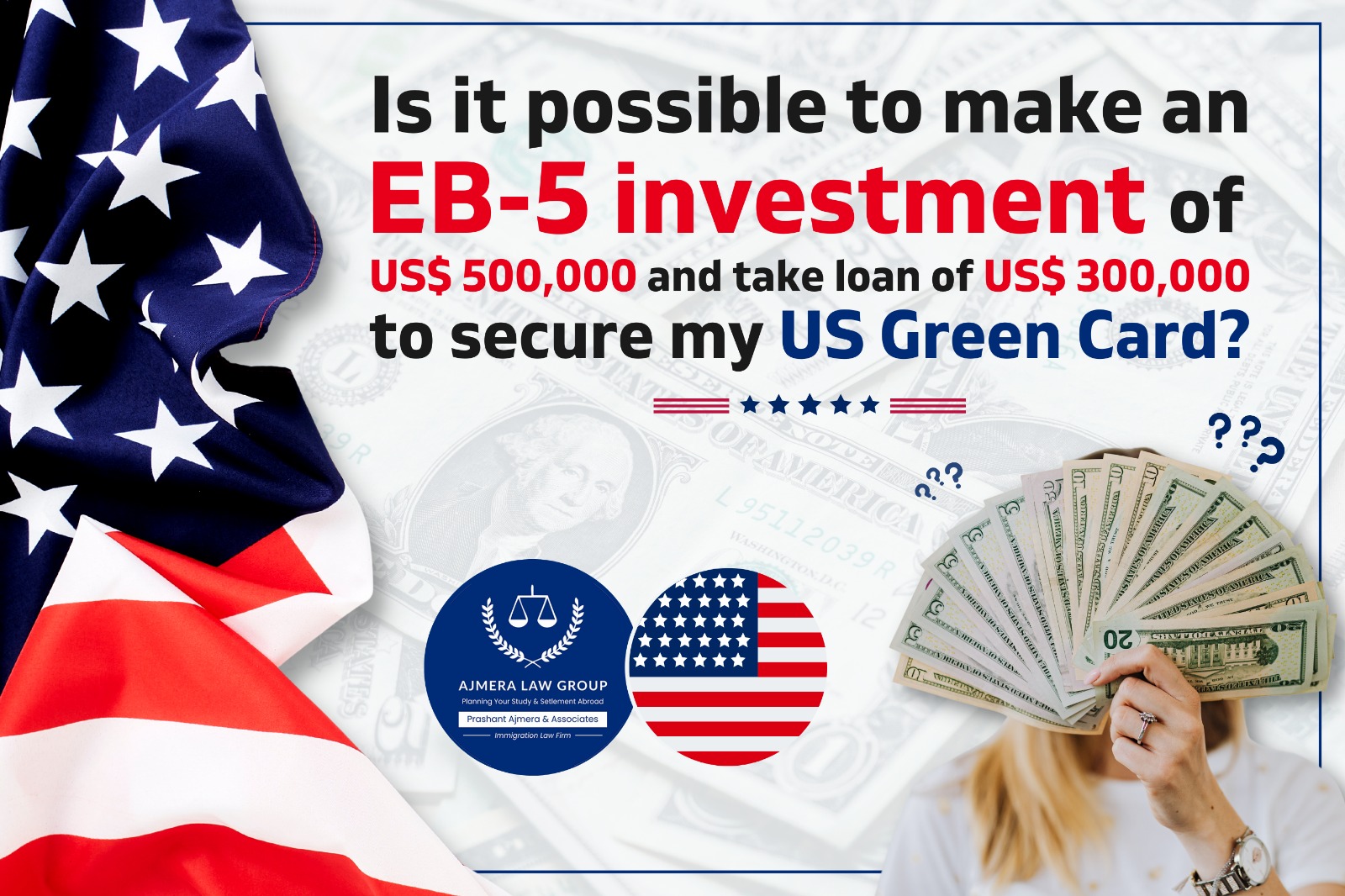Is it possible to make an EB-5 investment of US$ 500,000 and take
loan of US$ 300,000 to secure my US Green card?
As of March 15, 2022, the EB-5 immigrant investor program now requires a higher investment amount of US$ 800,000, which represents a 60% increase from the previous US$ 500,000. This significant rise in investment may pose challenges for many potential investors who might find it difficult to come up with such liquidity to participate in the program and invest in the USA.
However, there is a favorable development for EB-5 investors from a US court decision in November 2018. This decision allows investors to borrow money without having to provide personal collateral or pledge personal assets as security for the loan.
This can be done in two ways:
(I) Investors can seek loans from regulated financial institutions, either in the USA or anywhere in the world, that are willing to lend money with or without requiring collateral. These institutions could be banks or other licensed entities under the local regulatory authority.
(II) Alternatively, investors can receive loans from friends or relatives, which can be used for their EB-5 investment. However, it is important to note that the USCIS may request source of funds documentation from the friend or relative providing the loan.
The EB-5 immigrant investor category has three main requirements:
(i) an investment of capital,
(ii) engagement in a new commercial enterprise, and
(ii) job creation.
Several regional centers offer loans of up to US$ 300,000 without the need for collateral or security.
However, investors should exercise caution and consider the following points:
(i) Repayment terms of the loan,
(ii) Interest rates charged to the investors,
(iii) Duration of the loan,
(iv) The licensing status of the company providing the loan.
According to the USCIS regulations, gifted or borrowed funds are permissible for petitions filed on or after May 14, 2022, as long as they were given or loaned in good faith and not to circumvent limitations on permissible sources of capital, including proceeds from illegal activities.
Investors relying on such funds must demonstrate the lawful source of the funds by providing evidence for the donor or lender (if not a bank).
It is essential for investors to carefully review the loan or mortgage documents, the lender, and their source of funds, especially if the lender is not a bank.
Being thorough and compliant with USCIS regulations regarding the source of funds will help ensure a successful EB-5 investment process.
It is crucial for investors to be aware of past instances where regional centers offered similar investment structures, such as requiring a smaller investment amount with the rest in the form of a promissory note.
Around 1995, there was a case where investors followed such a structure, with a US$ 150,000 investment and US$ 350,000 in promissory notes. However, this approach was deemed unacceptable by the USCIS, resulting in the rejection of all EB-5 applications associated with it. Read more
Additionally, as a consequence of this improper practice, two officers of the Regional Centres involved in the scheme were charged and sentenced. Furthermore, the EB-5 program itself was temporarily suspended due to these issues.
This historical example highlights the importance of adhering to the regulations and guidelines set forth by the USCIS when participating in the EB-5 program.
Investors should exercise caution and ensure that their investments and funding sources comply with the program’s requirements to avoid legal issues and /or denial of the EB5 petition.
Transparency and compliance with USCIS guidelines are crucial to ensure the success of the EB-5 investment and secure the USA Green Card with the family.
The author of this article/blog is Prashant Ajmera, an Indian immigration lawyer and the founder of Ajmera Law Group. He has been a Canadian citizen for the past 30 years and is also the author of two books: “Millionaire of the Move” and “How to Plan for Your Child’s Foreign Education: Myth vs. Reality”. He has been assisting and advising Indian businessmen to establish businesses in Canada since 1993. Consult us


